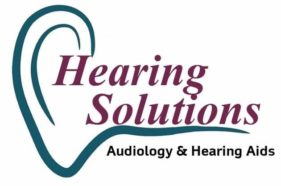
Hearing and Your Health
Hearing loss is incredibly common, affecting around 48 million Americans. But did you know that hearing loss does more than just affect your ability to hear? When left untreated, hearing loss can have a negative impact on your health and overall well-being. Many people don’t realize that our hearing is related to our general health. Sometimes, hearing loss is the cause of an underlying condition such as diabetes, heart disease, or high blood pressure. For this reason, it’s important to have your hearing checked regularly and to see your primary care physician annually. Together, we can catch any signs of hearing loss early and help you be proactive about your health.
Hearing and the Brain
Did you know that your hearing health is also connected to your brain? In fact, we don’t hear when sound reaches the ear, but when sound reaches the auditory cortex of the brain. In the brain is where sound is processed into information and even stored as a memory. When your hearing loss is left untreated, then your brain doesn’t receive the proper stimulation it needs to remain active and healthy. Over time this can lead to cognitive decline and even dementia.
The best way to maintain your cognitive abilities is to manage any signs of hearing loss early with hearing aids. Hearing aids will provide your brain with the proper exercise it needs to stay active and to continue processing sounds. If you suspect that you have hearing loss, then contact us today. We want to help you be proactive about your hearing health so you can feel your best.
Common Signs of Hearing Loss
You might have hearing loss if you find yourself turning the TV up higher than people around you, giving the wrong answers or answering the wrong questions, asking people to repeat themselves a lot, or isolating yourself because you’re not able to communicate with people and it’s frustrating. Many of our patients notice there’s a problem because they can’t hear the pastors at church. If any of these sound familiar, it’s probably worth coming in for a hearing test. Even if nothing’s wrong, it can be helpful to put your mind at ease and have a baseline in case your hearing changes in the future.
Types of Hearing Loss
Your treatment plan depends on what kind of hearing loss you have. Most forms of hearing loss can be treated, so it’s worth looking into your options, even if other doctors have given you the impression that there may not be a solution for you. There are three main kinds of hearing loss:
Conductive hearing loss sounds like you’re talking in a barrel, or like your ears are underwater. You may even feel like your ears are physically stopped up. What this means is that your ears are actually blocked off somehow, whether it’s because they have too much wax or because fluid has built up behind your ears (possibly due to allergies or an infection). If you have conductive hearing loss, you may need to see a physician for treatment.
Sensorineural hearing loss refers to actual damage to the hearing nerve, which might be caused by aging or noise exposure. Many veterans experience sensorineural hearing loss, as do people who go hunting a lot or people who work in loud environments like sawmills or chemical refineries. Sometimes sensorineural hearing loss is accompanied by tinnitus, also known as ringing in the ears. This form of hearing loss generally responds well to hearing aids.
Mixed hearing loss is a combination of nerve damage and either wax or fluid build-up, which will make your hearing even worse. In this case, the first step is for a physician to treat the conductive hearing loss, and then the remaining hearing loss can usually be treated with hearing aids.
Our Offices
Mon – Thurs: 9:00AM – 12:00PM & 1:30PM – 4:30PM
Fri – Sun: CLOSED
Jasper Office
605 W Gibson St
Jasper, TX 75951
F 409-384-2378
Mon – Thurs: 9:00AM – 12:00PM & 1:30PM – 4:30PM
Fri – Sun: CLOSED

